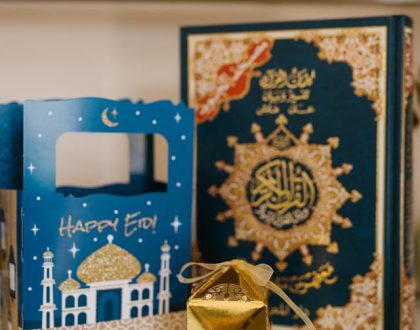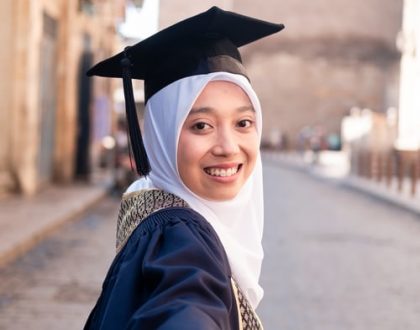Is life unfair when it doesn’t go to plan? Are you envious of others?

Question: Generally one expects that one will grow up and have a certain life, one will get married and will have children. When those things don’t happen then you’re left with a sense of unfairness that ‘I don’t have something that other people have’. You can try to say to yourself that you are happy for them and you can make dua for them but it still leaves you feeling sad.
How do you know that you do not envy them but that that you are feeling sad at the fact that you did not get what others did? Is it OK to feel sad because you didn’t get those things you assumed you would get but you didn’t?
Answer: It’s tough when you expected life to go one way, and it did not, but you need to face your reality and reprogram your mind to be content with what Allah Almighty destined for you.
Allah Almighty distributes favours, gifts and blessings to whom He wills. It’s not us who decide who takes what. He destined for some people to be married, and others to be single, some to have children, and others not, some people live longer, and other’s lives are much shorter. This is all from Allah Almighty’s wisdom.
We cannot interfere with Allah Almighty’s wisdom. We compare ourselves to others and that is the essence of our problems – comparing. You compare yourself with your sister or with your brother or with your friend, when in fact you are a unique person.
It may be that the purpose of your existence was not to have children. So you have to find something else to devote your time and energy on.
I know it’s good to have children but it’s not a necessity in life. It is not the be all and end all of your life. Allah Almighty destined some people to be blind. They do not kill themselves because they cannot see. Allah Almighty also destined for some people not be married. If this is the case, then look for ways you can utilise what you have to serve Allah Almighty in different ways.
Thirty years ago, one of my students married a friend of mine. As a newly married couple they had a child, but after the birth, there was a small incident and the baby died. The couple tried unsuccessfully over the next ten years to have a baby. The wife went into depression and suffered from physical and mental illness. Eventually she made up her mind and said ‘I’m not going to kill myself over this’ and they decided to foster two children. Those children have grown up now, so they dealt with their situation in this way.
Think about alternatives. If you keep hitting a brick wall and it is impenetrable, that means that Allah Almighty doesn’t want you to go down this route. He wants you to find something else.
Reflect on how to take a different direction. If someone kept trying for 10 years and it didn’t work, it is time to stop wasting your energy and time to try to find something else which Allah Almighty wants you to find, as He blocked this path for you, so you would find the other way. If you keep bashing your head against the wall, there is a message in it for you, which you need to get, like anything in life.
Sometimes someone wants to be a doctor like his brothers; but if he were to become a doctor he might be terrible with fatal consequences. It isn’t good for him and instead Allah Almighty will enable him to benefit many people in a different way. For instance, he will have the same reward as his brothers and sisters because he provided for them. Don’t feel sad, feel happy, because Allah Almighty used you to provide for your family to be doctors. So celebrate it instead of being sad about it.
So, how does one overcome sadness? How do you know that sadness is not envy towards those who have what you do not have?
I understand, but the heart, which is connected to Allah Almighty, should not be sad about not having something from the dunya. Having Allah Almighty’s company, having Allah Almighty’s pleasure, having Allah Almighty’s closeness can take away any sadness from your heart. You feel blessed that you know Allah Almighty. You feel blessed that you are close to Allah Almighty.
As Rabia al-Adawiyah, a very famous righteous woman, made a beautiful statement:
‘I keep my heart attached to Allah Almighty and my body converses with people, but the true love is in my heart and my communication is with people’.
This is combining dealing with dunya and being close to Allah Almighty.
Allah Almighty wants you to be closer to Him and this is one of the tests. Tests come in different shapes, sizes, colours, and flavours. This is one of the tests. Of course it is tough, but that is the nature of any test – it has to be tough.
Allah Almighty did not destine Aisha (may Allah be pleased with her) to have children, and this enabled her to pass on vast amounts of knowledge of the Prophet (peace be on him) because her time was not taken up by looking after children.
Imam Nawawi took the decision not to get married. He spread the knowledge all over the world. Though he passed away in his 40s everyone has heard of him. Imagine if he had a wife and children, he would not have had the same productivity.
How do you know you’re not envying other people if you are in a position where you don’t have what they have?
If you don’t wish them any harm, don’t wish them to lose the favours which Allah Almighty has given to them. Then it’s not envy. Even if it’s envy, it’s a good envy to want something like them as long as you wish for them to keep what they have.
If envy is rooted in insecurity does it help to validate the person who is envying, to praise them, to show them love so that they feel less envy?
From a psychological perspective insecurity is not external. What we are suggesting here is an external remedy; that by saying, ‘we love you, you are lovely’, and praising them that it will help them reduce their envy and insecurity. However, insecurity is not external.
Insecurity is internal. It is a self-narrative that you have about yourself – for instance ‘I’m good at this’, ‘I’m not like so and so’. When you develop that story you become insecure. One of the ways to help a person be secure is to help them boost and develop their own security. The more secure you are, the less envious you become.
Build yourself up from the inside by recognising your divine gifts, your particular strengths, your talents and celebrating your uniqueness. Think about ‘What do I have to show?’ ‘How good am I?’ or even say ‘I am good’.
If you struggle with the answer ‘What are you good at?’ it could even be ‘You know what, I made such a nice biryani!’ It could be anything that made you feel very good.
Getting rid of feelings of insecurity is difficult when one is an adult. Security is built in childhood.
The sense of security and insecurity in children is mainly built around comparison. It is wrong to put one child on a pedestal as they may become bullies to their siblings. They are up there because their parents have put them up there because they are brilliant! Those kinds of things really create a lot of insecurity in other children.
As a parent, what would you say to your child if they come home and they say, ‘It’s unfair, so and so has got a swimming pool, so and so has got a new playstation?’ How do you prevent the envy in them?
I would ask the child ‘What do you mean it’s unfair?’ Sometimes what we do is to take the child’s comment at face value. We are thinking, ‘O my child is feeling jealous. O my child is losing out.’ If you ask them ‘What is it that you have, that they don’t have?’ and flip the question back to them you might find their parents are divorced or they only have a mum. So then you say, ‘How can it be unfair?’ Be playful in your response.
Do not treat children as if they are the same, because everyone is an individual. We engage with each one individually and we don’t compare one over another. Everyone is unique. Allah Almighty in His own wisdom has given us what in His own wisdom has given us. So it’s for us to bring that out and celebrate that.
I used to say to my kids when they were younger, whenever you look at something on someone else and think it’s beautiful, be grateful that it looks beautiful on that person. If it came to you it won’t be as beautiful as it is. So admire it and see the greatness of Allah Almighty because if you think I want it, I want it, it becomes a fitnah. We know from the story of Al Khidr in Surat al Kahf, when the couple lost their child, Allah Almighty was protecting them. Who knows the secret and who said that the only thing that makes us people is going through those processes of getting up, growing up, getting married, having a family?
May Allah Almighty really help us and cure us from this illness. Ameen
Shaykh Haytham Tamim and Sister Rahma Abdulatif
Excerpt from Shaykh Haytham Tamim’s course on How to Keep the Heart Healthy. Transcribed by Rose Roslan.
Related posts
Sign up to our course on How to Keep your Heart Healthy
- How Allah strengthens the hearts of believers
- Why should you follow up one good action with another one?
- Don’t be a Ramadani person – Be a Rabbani person.
- How do you pray Salat al-Kusuf – the prayer during a solar eclipse
- The test of will – Tarawih Reflections 30

Recommended Posts

When can you fast after Eid?
April 07, 2024

Is it permissible to take out a student loan?
April 02, 2024

